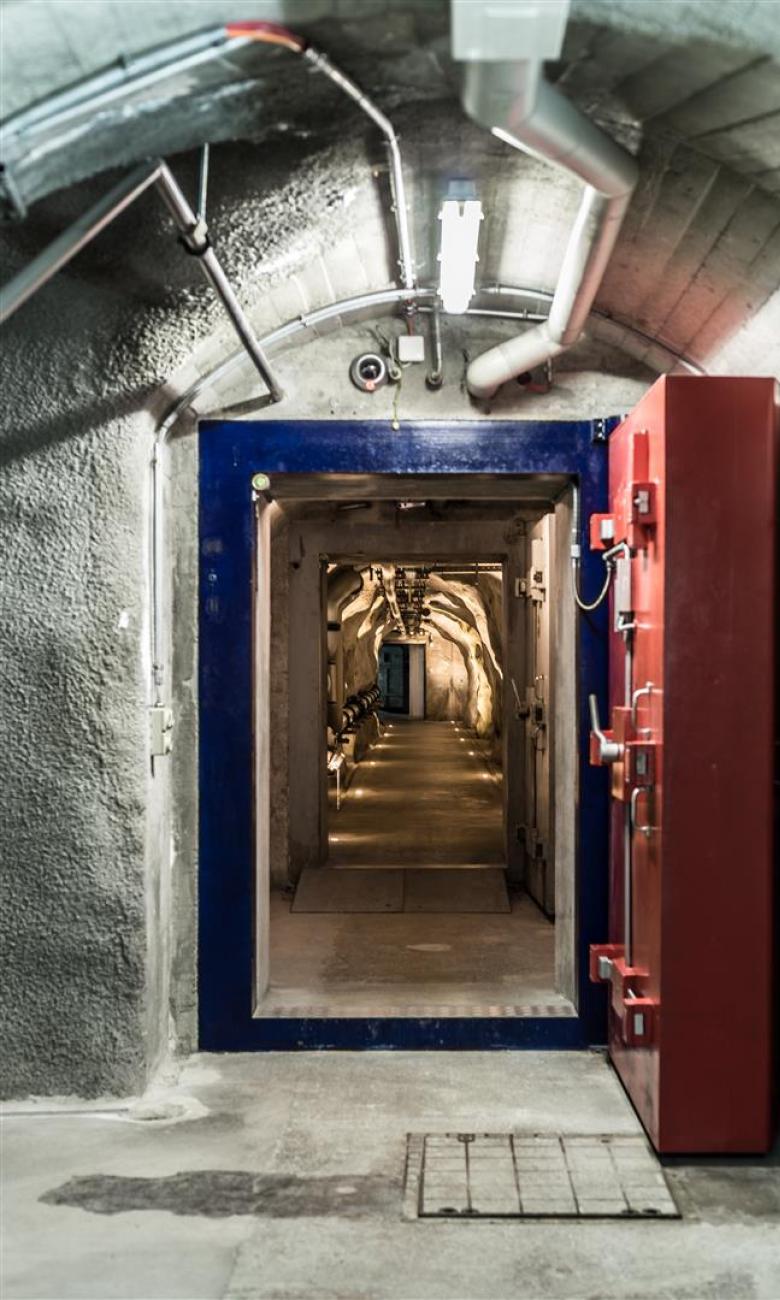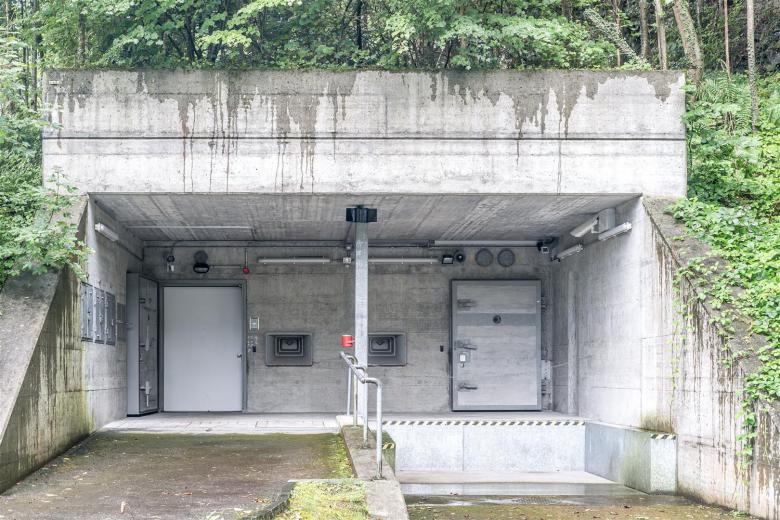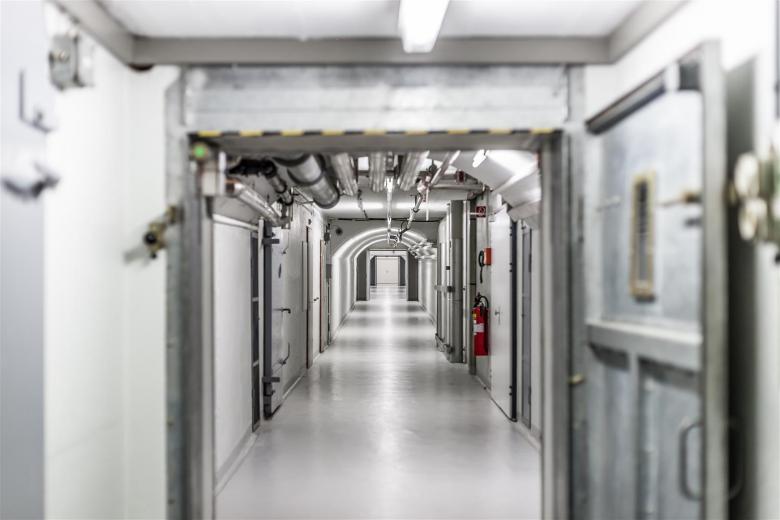Switzerland to become a secure haven for the world's data
Quality, stability, neutrality, confidentiality: The country is capitalising on its strengths and investing in the data-driven economy. The ambition is to become a peaceful haven for the storage of confidential physical and digital data for Swiss and international companies.
In response to the exponential growth in data, Switzerland is repositioning itself to focus on the protection of physical and digital data stored in Swiss server farms. Its reputation for quality, stability, respectability and neutrality are a big advantage when it comes to positioning itself among the best countries for storing the physical and digital data of Swiss and international companies. On 20 April 2016, the Federal Council adopted the Digital Switzerland strategy, an agenda designed to help Switzerland seize opportunities in the digital world. The data-driven economy and data security are at the heart of this approach.
Protecting the data of individuals, the state and companies has become crucial in a society that is rapidly becoming digitalised. The increasing number of thefts of sensitive data by cybercriminals has made securing this data even more urgent. Switzerland has a lot to offer. In the Data Centre Risk Index it ranks 11th among the most attractive countries in the world for data centres.

Attractive legal environment
Switzerland is attractive for a number of reasons. It has a good reputation when it comes to confidentiality and data protection. The Swiss Data Protection Act, which is scheduled for revision in 2016, protects all personal data, including digital data. That means that under Swiss legislation nobody has unauthorised access to data legally stored in Swiss centres – whether in physical (CD) or digital format.
Switzerland also boasts political stability, neutrality, and a safe, cheap supply of electricity, which is renewable and creates almost no CO2 emissions since up to 60% comes from hydropower. Let's not forget, a server farm is above all an energy chasm, with vast amounts of power needed to cool data servers running at full capacity day and night.
A large area dedicated to IT hosting
Switzerland currently has 62 shared data centres, which are used by a number of companies. This figure does not include private data centres like those of the bank UBS or the telecommunications operator Swisscom. More than 150,000 m2 is dedicated to IT hosting – an area bigger than 20 football pitches. This represents an expansion of 63% in the area covered by data centres since 2011, according to a study by the Institut für Wirtschaftsstudien (IWSB), a private research institute in Basel. The amount of space devoted to data centres in Switzerland is the sixth largest in Europe. A data centre measuring 10,000 m2 consumes as much electricity as a town with 50,000 residents.

Many companies in French-speaking Switzerland are taking advantage of Switzerland's appeal as a safe haven for data storage. These include start-ups such as Safe Host, whose first data centre, in Plan les-Ouates in the canton of Geneva, is already up and running. The company is now preparing to launch a second centre in Gland (Vaud) measuring 18,000m2, to be made available in stages. Others include T3 Risk Management, Wisekey, Seculabs, SCRT, NetGuardians, Navixia, Equinix, Brainserve…. The Swiss data storage industry is booming.
The Swiss data centres are organising themselves
The Vigiswiss association was launched in February 2016 to raise international awareness of the benefits of data storage in Switzerland. It currently comprises 12 Swiss companies active in data hosting, including Deltalis, Safe Host and Abissa. The Vigiswiss label acts as a guarantee of quality and advertises the benefits of storing data in Switzerland worldwide.
According to the president of Vigiswiss's strategic committee, Laurence Jovignot-Halifi, the association aims to "bring the best Swiss companies that focus on storage and data protection together to champion Switzerland internationally as a digital safe-haven." Vigiswiss aims to appeal to both governments and companies, and to international organisations that wish to protect their confidential data.
A new economy to safeguard
The members of the Vigiswiss association have therefore signed a charter in which they undertake to guarantee a high level of security and not to host illegal data. If a problem arises, the certified data centres agree to provide their clients with a solution within 24 hours. The label is intended to ensure the highest level of security for the data of international clients. Furthermore, the members will be regularly audited by an independent body to ensure that they meet these standards.
Vigiswiss also has a second mission: to raise awareness among law-makers of economic issues surrounding the storage, security and confidentiality of data in Switzerland. According to the association, it is essential that governments provide the conditions to support the development of this new economy. For now, Switzerland has not accepted administrative surveillance of stored data. This is a competitive advantage over other countries which Vigiswiss would like to hold on to in order to attract foreign clients.
The army is converting its bunkers
Private stakeholders are not the only ones to understand Switzerland's potential in the 'data economy'. For several years, the Swiss Army has been converting its bunkers into centres for the hosting of private data. Since being converted, the ex-command centre in Attinghausen in the canton of Uri has become one of the biggest data storage centres in the country. Swiss and foreign businesses make up 30% of its clientele.


The bunker in Attinghausen is 10km away from Lake Lucerne. It lies under 1500m of mountain, protected by four-tonne nuclear blast resistant doors, behind which the computer servers of private banks, pharmaceutical firms and multinational companies run 24/7. This underground location worthy of a spy film is made up of 15,000 m2 of corridors and rooms on three levels. Its GPS location is a secret.
Households will produce 318 iPhones worth of data annually
More than a third of this surface area is currently rented out. Growing demand from abroad means that those in charge of Attinghausen should have no trouble finding customers for the rest. In fact, according to the market research firm IDC, the volume of data worldwide doubles every year. By 2020, it will take the storage capacity of 318 iPhone 6S 32GB to hold the data produced every year by a single household.




